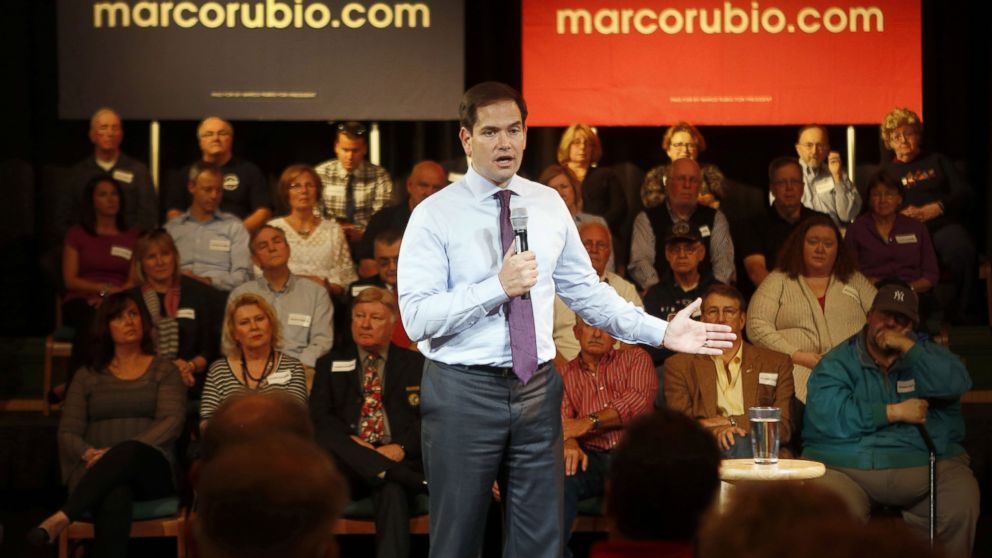Marco Rubio’s Fundraising Numbers Fall Short of Expectations
Rubio’s fundraising falls short of his reserved ad space.

— -- Over the course of a recent campaign swing in New Hampshire, Marco Rubio was repeatedly asked about campaign finance. His answer each time: “When the media stops charging for ads, I’ll stop fundraising.”
In late June, the Florida senator’s campaign was the first to make ad buys, reserving $17 million worth of airtime in early primary and caucus states. But he may have bitten off more than he could chew: last quarter’s fundraising numbers show Rubio only has $11 million in cash on hand.
John Geer, a political science professor at Vanderbilt University who specializes in political advertising, explained the Rubio campaign may have a contract that will allow it to ‘pay as it goes’. But in terms of optics, he said, this doesn’t look good.
"It’s just telling you that their own fundraising success has not met their own expectations,” said Geer.
Others see things differently. Stuart Stevens, a political consultant who worked on both the Bush and Romney campaigns, insists Rubio's early ad buy is "smart money management."
Ads can be bought at any time, he explained, but tend to get get more expensive. There are two advantages to reserving ad space early: it is both cheaper and easier to lock down particular air times before other candidates do. Rubio’s ads are set to start next month and air through February, and the campaign will only have to pay for ad space it actually uses (Rubio's campaign hasn't yet spent anything on ads).
“It’s very typical for campaigns to reserve time in advance and then pay as they go,” Stevens said.
Other campaigns have not released how much ad space they’ve reserved.
Rubio’s team says it isn't worried.
“We are on track to having our best fundraising month so far,” said Alex Conant, the campaign’s communications director, when asked about the ad buys.
“Marco will have the resources necessary to compete in every state and win the Republican nomination," he said.




